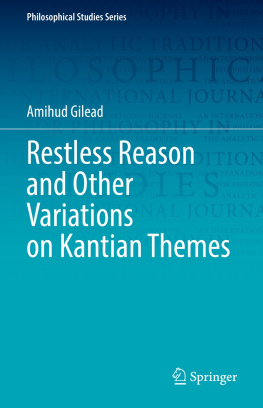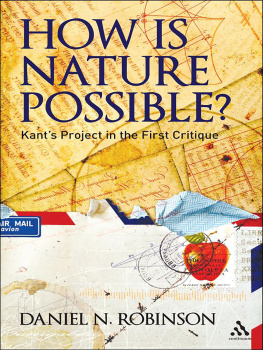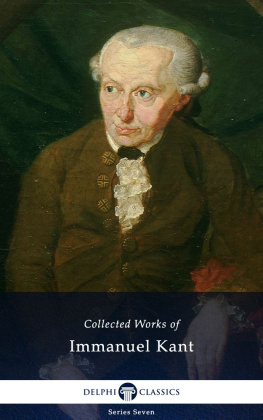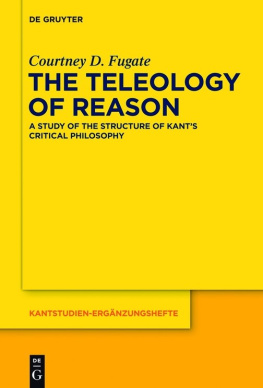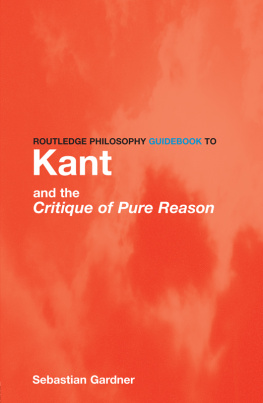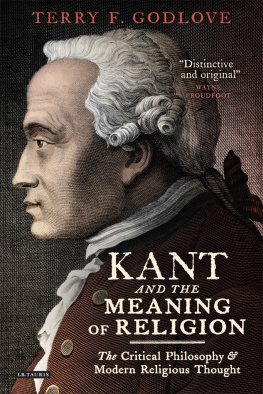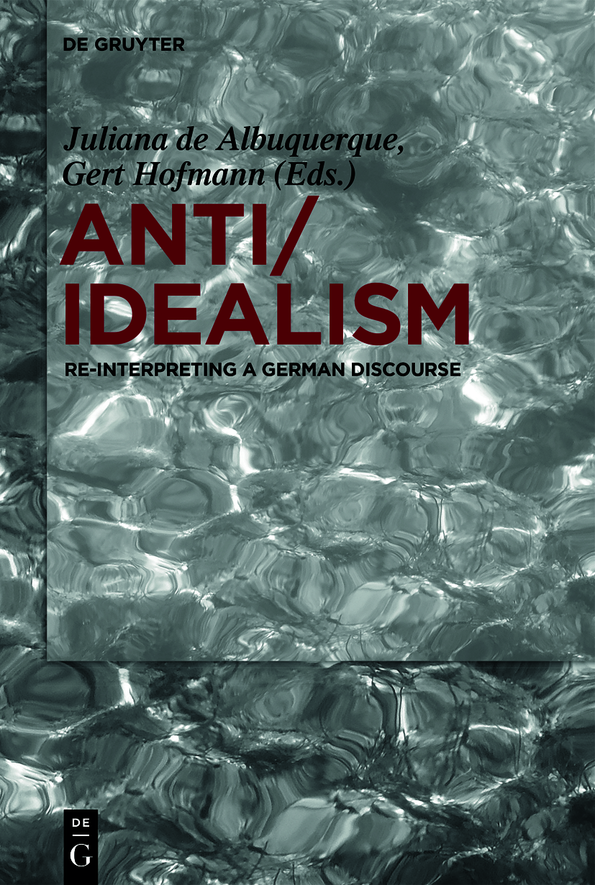Anti/Idealism
Anti/Idealism
Re-interpreting a German Discourse
Edited by
Juliana Albuquerque
Gert Hofmann
ISBN 9783110582246
e-ISBN (PDF) 9783110586602
e-ISBN (EPUB) 9783110585025
Bibliographic information published by the Deutsche Nationalbibliothek
The Deutsche Nationalbibliothek lists this publication in the Deutsche Nationalbibliografie; detailed bibliographic data are available on the Internet at http://dnb.dnb.de.
2019 Walter de Gruyter GmbH, Berlin/Boston
Acknowledgements
We would like to thank the Department of German and the School of Languages, Literatures and Cultures at University College Cork (UCC) for hosting and funding the activities and conferences of the (Anti-)Classicism & (Anti-)Idealism Research Network. We are especially grateful to our Departments secretaries, Deborah Fitzgibbon and Veronica Forde for their organisational assistance. We would also like to express our gratitude to Mary Venables, Kristie Kachler, Ian Creaner, Hanna Vlker and Marcus Bowman for their linguistic and technical support in the process of editing this book.
Introduction
The essays in this volume represent a collective attempt to reinterpret a German intellectual tradition by considering the ways in which the fields of literature and philosophy interact with each other from the Enlightenment onwards.
As E. M. , one of the consequences of the Reformation on artists and intellectuals in Germany was that they came to see themselves as having to create a literary and thought tradition that could match Luthers rupture of the Catholic world.
The religious conflicts that followed from the Protestant Reformation prompted social and political changes throughout the Holy Roman Empire. Protestantism itself left a profound impression on German creative life as a whole. And while German writers honed their creativity as Luthers linguistic descendants by engaging with philosophy, in turn, philosophy came to be shaped by its interaction with literature.
This exchange is especially important for an understanding of the development of German thought from the late eighteenth centurys Enlightenment through to the first half of the twentieth century: Why was it essential for G. W. F. Hegel to discuss Sophocles ancient tragedy of Antigone in the Phenomenology of Spirit? Why did Nietzsche emphasise the connection between himself and certain literary figures, such as Heine and Dostoevsky? Why did Freud, who saw himself working ultimately in a philosophical tradition, say that he owed more to the great dramatists than to the psychologists? Or why have Martin Heideggers references to literary works, from his early mention of The Death of Ivan Ilych in his magnum opus Being and Time to the interpretation of works by Friedrich Hlderlin, Georg Trakl and Rainer Maria Rilke, had such a defining impact also on schools of literary criticism?
T. J. Reed suggests that these amazingly productive permeations are owed to the imprecise and permeable lines of what is only conventionally perceived as defining boundaries between literary, philosophical or theological debates: Goethes poetry contains a vital philosophy, some of Kants essays can be read as dramatic dialogue, Lessings greatest drama outpreaches orthodox theology. Essential light is cast equally by them all. (, p. ix)
The late eighteenth century is characterised by two crucial events. On the one hand, it is marked by the rise of Goethe as a dominating literary figure with far-reaching influence on German intellectual life. On the other, it sees the birth and development of Immanuel Kants approach to enlightenment philosophy as transcendental critique, which became the foundation for the philosophical discourse of German Idealism.
From Friedrich Schiller and the three young thinkers of the Tbingen School (Georg Wilhelm Friedrich Hegel, Friedrich Hlderlin and Friedrich Wilhelm Joseph Schelling) who inaugurated the philosophical tradition of German Idealism in the late eighteenth century, to Freud and Heidegger in the twentieth, much of German thought can be understood as an attempt to establish a synthesis between these two types of world perception epitomised by both Goethe and Kantbetween, so to speak, Dichtung and Wahrheit.
While these three young philosophers concreatively adopted Kants view of philosophy as a system of pure thought, they also reacted to some extent against his systematising impulse by positing the equiprimordiality of world and self, of aesthetic perception and reason, and of experience and pure idea.
This can be seen notably in The Oldest Systematic Program, dating from around 1797, a fragmentary manifesto of German Idealism presumably co-authored by Hegel, Schelling and Hlderlin, where beauty is described as the sole unifying principle between truth (theoretical reason) and goodness (practical reason).
Guided by the idea that all philosophy of Geist is an aesthetic philosophy, The Oldest Systematic Program , p. 234).
Kants dualism between thought and experience (freedom and necessity) is the source of idealist philosophys self-referential critique. For Kant, there is no discursive reconciliation possible between idea and experience, only the aporetic statement of their antagonistic co-existence, which is the transcendental condition of his philosophical critique of reason, but also of the poetic impulse to reconcile this antagonism in a trans-conceptual, figurative way. Consequently, in spite of this categorical antagonism, Kants critique culminates in the categorical imperative as the con-creative metaphorical form for the impossible fusion of its constituent discourses (the theoretical and the practical): the categorical imperative links the discourses of idea and experience, as of freedom and natural law, ultimately in the as if of a metaphorical equation. Kants categorical metaphor has inspired the poetic drift of philosophy and critical theory ever since (cf. Steven Helmling (2009): Adorno's Poetics of Critique)it thus constitutes the anti-idealist kernel of any idealist discourse of pure thought. In Kants own thinking the oxymoronic monster of the sketched concept of an aesthetic idea as an idea of aesthetic value and meaningfulness constitutes the core of [his] philosophy of art in his Critique of Judgement ( but also stirring up the poetic as a trans-conceptual expansion of the philosophical discourse by other means.
Hegel, Schelling and Hlderlin spin this thought out in The Oldest Systematic Program, where it is suggested that the aesthetic act should be seen as the supreme act of reason (hchster Akt der Vernunft) (, p. 235) since it results in the wholistic creation of a lived world of beauty rather than in the spontaneous emergence of purely abstract intellectual principles and ideas.
Kants critique of reason, as the human faculty of ideas, manifests the intrinsic status of crisis of reason in the lived world. Following Schillers play aesthetics, which first attempted to integrate idea and experience practically, through art, the European philosophical discourse has been both haunted by the intellectual trauma of Kants crisis, and inspired by the vision of overcoming or at least managing it artistically and poetically. Hlderlins corporeal turn of the transcendental discourse in a poetically articulated notion of the apriority of the individual; Novalis, Schlegels and Tiecks progressive universal poetic, which catapults Kants rigid subject-object antagonism into a transcendental world symphony of poetic events; Nietzsches philosophy of life as pursuing a more environmental than transcendental sense of the earth; and Derridas deconstruction of the transcendental subject in a discourse that intensely depends on literary inspirations are only some of the most decisive and impactful steps on this route.


